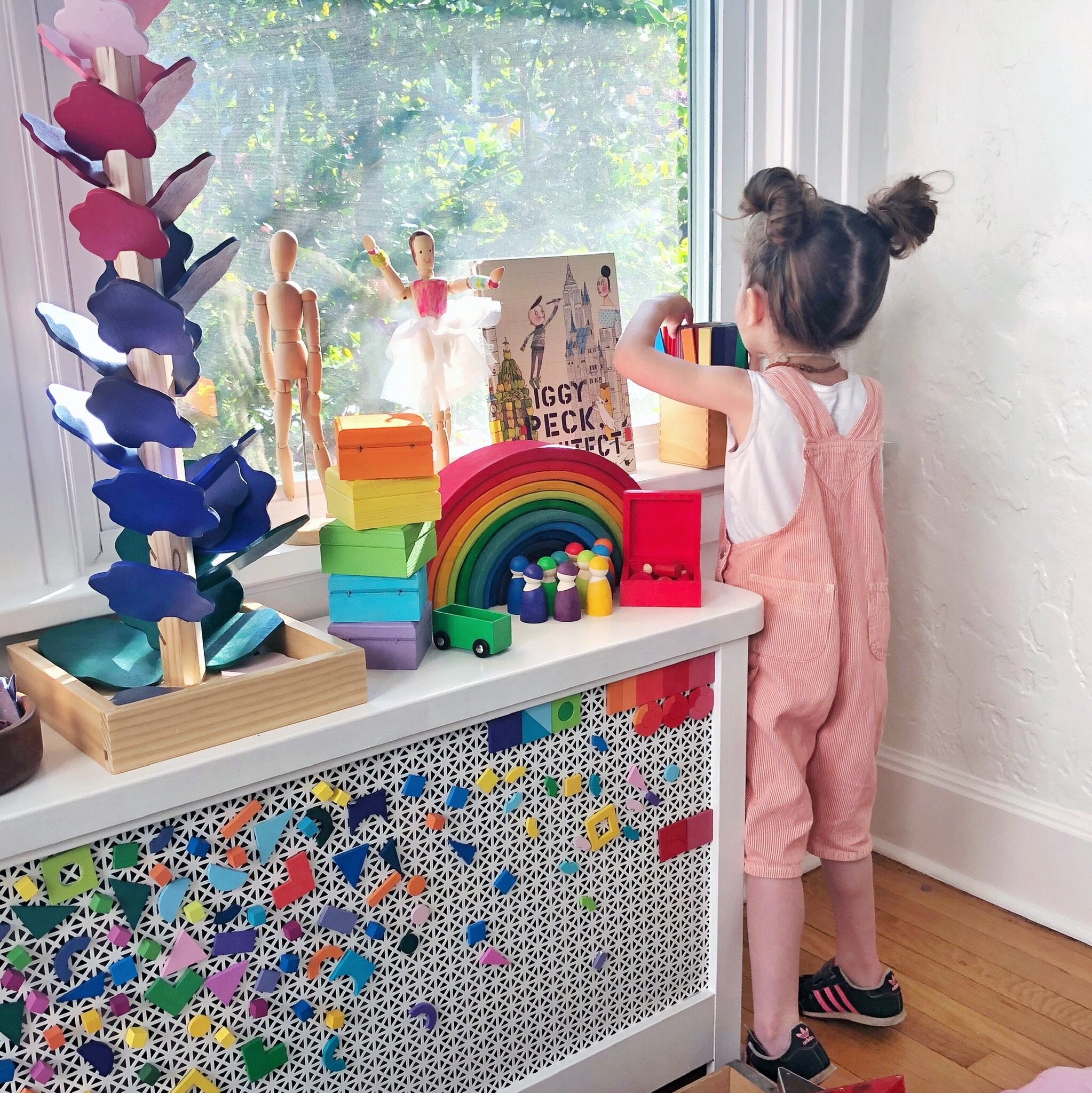A Simple Strategy to Use When Your Child Asks You to Buy Things
/Do you have a child who seems to be constantly asking you to buy things this holiday season? Or even year-round? Holiday toy catalogs are everywhere right now, right along with commercials and ads for toys that kids can’t seem to get enough of.
If you do have a child who is always asking you to buy them things, you are not alone!
As a parenting strategist and a play expert, I’ve got a strategy for you when it comes to responding to your kids in this scenario. Here is what I do when my kids want me to buy them things.
What to Say When Your Child Asks You to Buy Things
I know how frustrating it can be when your child won’t stop asking you to buy them things every time they see the latest toy on TV or in a magazine they want, or anytime you step foot into a Target.
“Can I have this doll?”
“We should buy these blocks.”
“I need this bike!”
I know how tempting it can be to instantly tell your child “no” and move on. But, here’s what I want you to try instead:
“It’s okay to want things, and it’s okay to ask for things. Sometimes I’ll say yes, and sometimes I’ll say no. But it’s always okay for you to ask.”
We need to instill the message for them that it is always okay to ask for what they want. Tell them:
“You might get a yes, you might get a no, but you won’t know unless you try.”
Want to take it an extra step? Even if your answer is going to be “no”, let your child know that you hear them and understand why they asked for what they want.
“That is such a cool bike! I get why you would want to have that!”
This lets your child know that you’re empathetic to their wants and they will be much more likely to not fight your answer being “no”.
Do you have a child that often says “That’s not fair!” when they don’t get what they want? Check out this blog.
What Not to Say When Your Child Asks You to Buy Things
We want our kids to grow up to be adults who speak up, ask for more, and are confident and brave! Here’s what I don’t want you to say when your child asks you to buy something:
“Stop asking me for so much stuff!”
“Don’t be so greedy!”
“You already have so many things!”
When we tell our kids that they are being greedy for asking for what they want, it sends them the message that no matter what the answer will always be no, and that it isn’t okay to ask for what you want.
The next time you’re somewhere (or even home watching TV or browsing the internet) and your kid is asking you for stuff non-stop and you’re about to blow your top, pause. Remember this simple strategy and that it is a good opportunity to instill in your child that it is always okay for them to ask for what they want.
It doesn’t mean that you have to give in to your child, or that they’re always going to get what they want, but it will paint the picture to them that it’s always okay for them to ask.
I hope you enjoy this blog! ! If you want to keep up with more Workspace for Children content, follow along on Instagram by clicking HERE.
SUBSCRIBE TO MY NEWSLETTER
WANT TO SEE MORE BLOGS LIKE THIS ONE? GREAT! CHECK OUT THE POSTS BELOW!
CHECK OUT OUR EBOOKS!
THE PLAY PLAN
The Play Plan is an ebook containing play invitations that are easy to set up, inexpensive, and apply children of all ages. The 25 play prompts are divided into five categories and use items that you most likely already have at home. These play prompts consider children of all ages, all developmental stages, and all learning capabilities. Each prompt can be tailored to fit your unique child’s needs. Play is meant to be simple.
$28
THE HITTING HANDBOOK
Learn exactly how to respond to hitting with clarity and confidence.
How to respond when another child hits yours
What to do when your child is the one hitting
Managing siblings hitting one another
Exactly how to use play and storytelling to teach your child how to stop hitting and start communicating their needs appropriately.
This is not just about toddlers hitting or saving face on the playground.
You are laying the groundwork for your child to learn how to respect boundaries and how to set boundaries for themselves.















Rescuing them from discomfort also robs them of resilience.